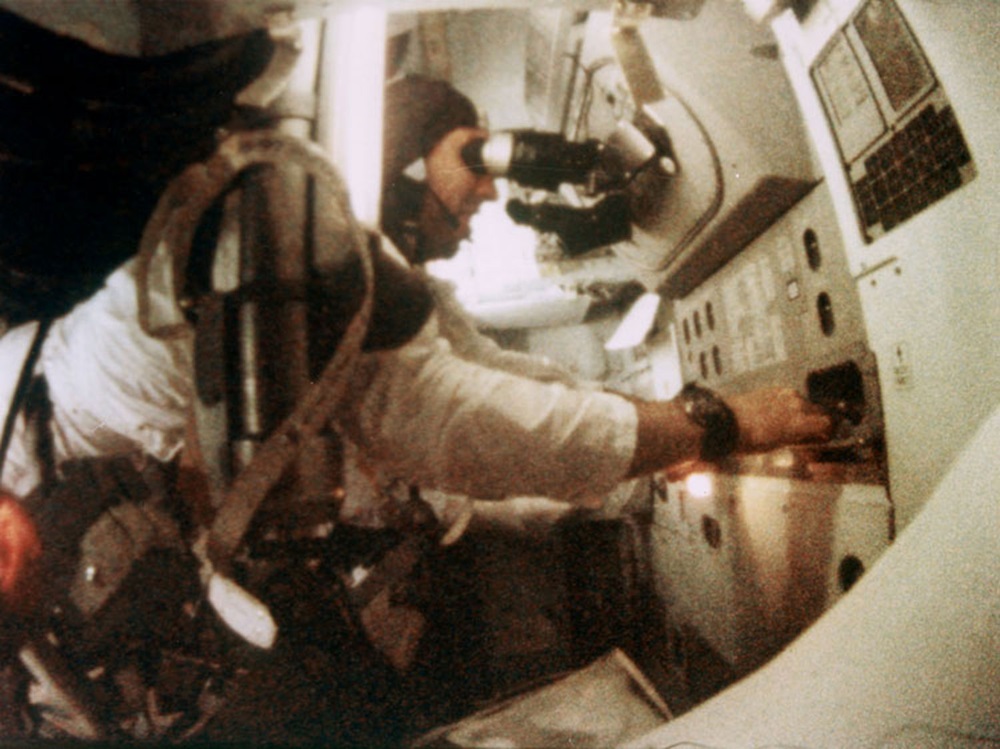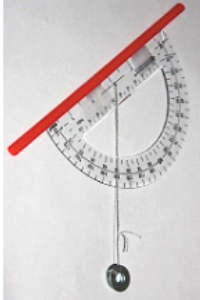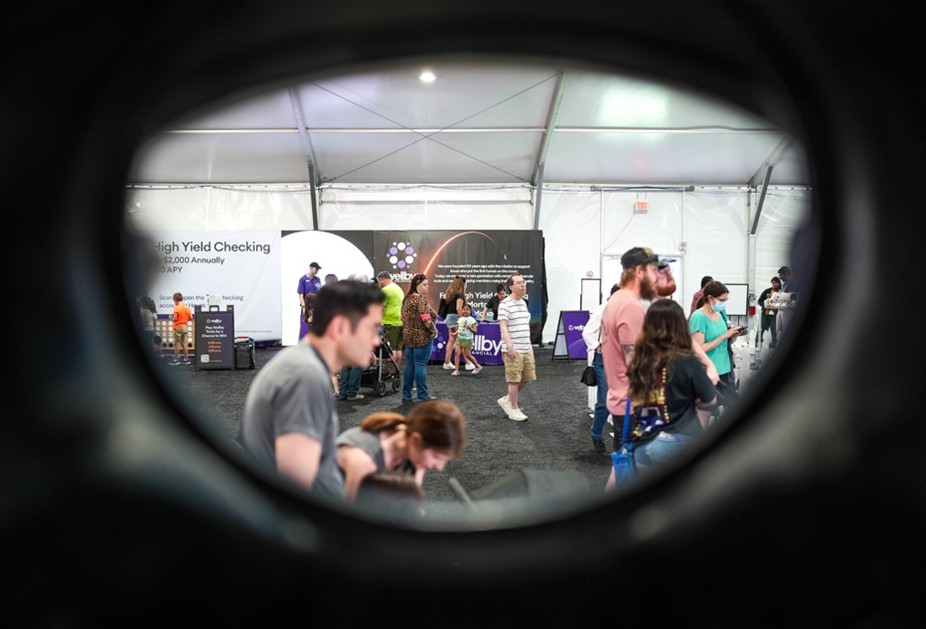
Though the center is temporarily closed, we are still passionate about sharing science and space! In this series, get hands-on with some fun and educational activities to do at home with the kiddos.
Build your own sextant
Objective
Investigate celestial navigation, also known as astronavigation, and build a sextant to determine your latitude.
Background
An instrument that uses Polaris, the “North Star,” to determine latitude is called a sextant. Before modern tools, sailors had to look to the stars to figure out where they were. By measuring the angle between Polaris and the horizon, they could tell their latitude, or how far north or south they were between the equator and the North Pole. Sextants are so reliable, they are even used today – including by astronauts.
Astronauts experimented with sextants on the Gemini missions of 1965-66, and the Apollo program installed special sextants in the command module. Why? If astronauts lost communications or equipment failed, using the sextant they can determine their position. However, since they are up in the stars rather than at sea looking up at stars, astronauts do not have a horizon to use in their latitude calculations. Instead of measuring between the horizon and Polaris, astronauts would measure between two stars. For instance, Gemini XII used Betelgeuse and Rigel along with Betelgeuse and Bellatrix.

Materials
- Drinking straw
- Protractor
- String
- Steel washer (or other small weight)
- Tape
- Map or website to look up latitudes
Instructions
- Tape a drinking straw to the bottom edge of a protractor.
- Tie one end of a string to the center of the protractor. One the other end of the string, tie a steel washer or other mass.
- Locate the North Star through the straw. Have a partner read the created angle on the protractor. Subtract the measured angle from 90 to give you your latitude.
- Look up the latitude on a map or online and see where you may be. You may select a longitude anywhere on your latitude for different locations.
Ideas
- If you can’t see the North Star or are inside, pick an object in the room and determine what your latitude would be if that object were the North Star!
- Measure from different locations, such as from your home and from a local park. How different is the latitude?
[su_box title=”In case you missed it”]
Try this at home Part 1: Grow your own space seeds
Try this at home Part 2: Cleaning water
[/su_box]







